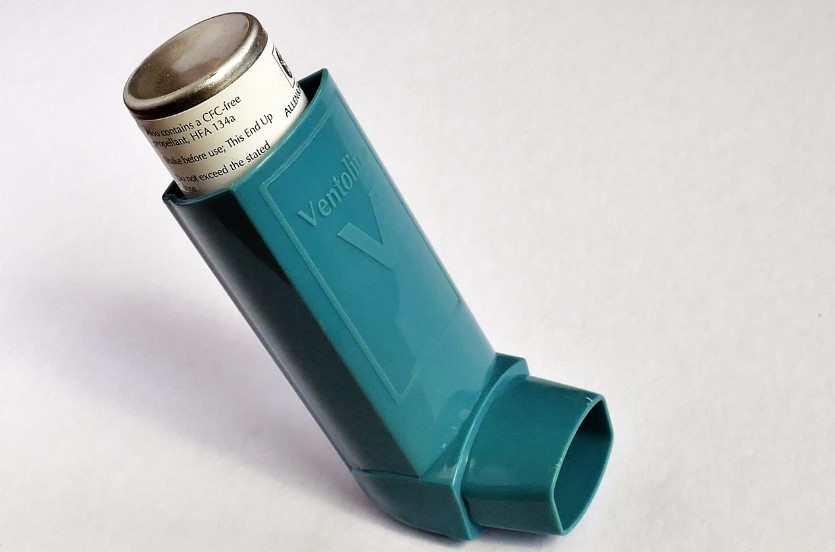
Allergic Asthma: Causes, Symptoms, Tests, and Treatments
Asthma and allergies may appear unrelated, but they frequently coexist in the same person. It’s important to recognize that not all asthma patients have allergies, and not all allergy sufferers develop asthma.
In this article, we will discuss the causes, symptoms, tests, and treatments of allergic asthma.
Understanding Allergic Asthma
A Union of Allergies and Asthma
People with allergic asthma experience symptoms akin to those with non-allergic asthma. These include:
- Wheezing
- Coughing
- Chest tightness
- Shortness of breath
Additionally, allergic asthma may manifest common allergy symptoms:
- Runny nose with clear or pale-colored mucus
- Itching around the nose, mouth, or eyes
- Red, watery eyes
What Sets It Off?
Triggers for allergic asthma can vary from person to person. Common culprits include:
- Pollen from grass, trees, and weeds
- Dust mites
- Mold
- Pet dander
Interestingly, allergic individuals may react differently to various substances. Some allergens provoke skin reactions, while others ignite asthma symptoms. Therefore, it is important to know your specific triggers and body’s response.
Allergic vs. Non-Allergic Asthma
Spot the Difference
Both allergic and non-allergic asthma have similar symptoms. However, the key difference lies in their triggers.
Allergic asthma responds to indoor or outdoor allergens, while non-allergic asthma can be sparked by irritants such as smoke, pollutants, exercise, viruses, or various factors.
People with allergic asthma may need treatment for both their asthma symptoms and underlying allergies, making it essential to identify triggers accurately.
The Allergic Asthma Experience
What to Expect
Differentiating between non-allergic and allergic asthma can be tricky because symptoms largely overlap. Both feature the classic symptoms of asthma: coughing, wheezing, chest tightness, and shortness of breath.
The main contrast is that allergic asthma typically manifests after inhaling allergens. Some may also encounter non-respiratory allergy symptoms, such as skin hives.
Treatment for Allergic Asthma
Effectively managing allergic asthma involves a multifaceted approach. It encompasses diagnosis, treatment, trigger avoidance, and follow-up care.
Diagnosis
Before tailoring a treatment plan, your doctor will need to confirm the diagnosis. This involves reviewing your medical and family history, discussing symptoms and potential triggers, and conducting lung tests like spirometry, fractional exhaled nitrous oxide (FeNO), and methacholine challenge tests.
For pinpointing allergies, skin prick tests and blood tests like specific IgE or sIgE tests are common diagnostic tools.
Treatment
Addressing allergic asthma necessitates a dual approach—managing allergies and controlling asthma symptoms.
Allergies can be initially tackled with antihistamines, which block allergic reaction chemicals. Regular use during allergy seasons often yields better results.
Severe allergic asthma cases might explore allergen immunotherapy, available as allergy shots or tablets. This therapy aims to enhance tolerance to allergens, potentially reducing or eliminating symptoms.
Various asthma medications exist, some curbing airway inflammation, others targeting allergic reactions that trigger symptoms, and some relieving coughing and wheezing. Medication choice depends on symptom severity and type.
Trigger Avoidance
Once allergic asthma is confirmed, recognizing and avoiding triggers becomes of utmost importance. A comprehensive understanding of allergens through allergy testing helps individuals identify which substances provoke symptoms. Armed with this knowledge, you can take measures to limit exposure to these allergens.
Follow-Up
Regular follow-up appointments with your healthcare provider are essential. These visits allow your doctor to gauge symptom frequency and severity, fine-tuning your treatment plan to prevent uncontrolled asthma. Consistent monitoring ensures that you control the disease, not the other way around.
Managing Allergic Asthma
Control, Not Cure
While there’s no outright cure for allergic asthma, effective management can significantly improve your quality of life. By treating underlying allergies, you may reduce symptom frequency or eliminate them altogether. Notably, not all allergens have immunotherapy options, so discussing the best treatment approach with your healthcare provider is important.
Does Allergic Asthma Vanish?
Asthma is tenacious and can cause structural changes in your airways, making it challenging to outgrow completely. Even if symptoms recede over time, they may resurface upon exposure to triggering allergens.
Conversely, some adults develop allergies and allergic asthma, illustrating that it’s not exclusively a childhood affliction.
Asthma Attacks and Allergic Asthma
Allergic asthma, like other forms of asthma, can lead to dangerous asthma attacks. These attacks involve inflamed and swollen airways, constricted muscles around breathing tubes, and excessive mucus production. These factors narrow the airways, impeding proper airflow into the lungs.
If you suspect an asthma attack, call emergency, use your quick-relief inhaler, and seek immediate medical attention.
Climate Change and Allergic Asthma
An Environmental Challenge
Climate change poses risks for individuals with allergic asthma. Rising temperatures can alter the timing, duration, and intensity of pollen allergy seasons, affecting those with pollen-triggered allergic asthma. Extreme weather events, such as thunderstorms, can also provoke allergic asthma attacks.
Non-allergic asthma sufferers are at risk when air quality deteriorates due to increased pollution caused by climate change.
In a Nutshell
Allergic asthma affects many people around the world. Understanding its causes, symptoms, diagnostic tests, and treatments is vital for effective management.
With proper care, you can control the condition and lead a healthy, fulfilling life, even in the face of changing environmental challenges.
If you’re based in London and are dealing with allergy or asthma, you are encouraged to schedule an appointment with our allergist in London. Our specialist will perform comprehensive allergy testing and provide a full consultation to address your specific needs.

